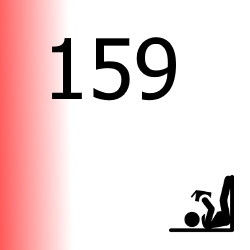Reading from the perspective of genre theory
Abstract
The theory of text genres, commonly used in literature studies, linguistics, sociology and psychology, still has not found a proper interest in library and information studies. In the article we gave one of the important aspects arising from the genre theory, namely the role of knowledge of genres (or a single genre) in the process of reading and communication. The author used an interactive and transactional model of reading. In conclusion, the author illustrated the use of many text genres in the work of librarian in the process of information organisation.References
ALLEN, R. Bursting bubbles: „soap opera” audiences and the limits of genre. W: Seiter E. i in. (red.) Remote control: television, audiences and cultural power. London: Routledge, 1991. ISBN 0415065054.
ANDERSEN, J. Analyzing the role of knowledge organization in scholarly communication: an inquiry into the intellectual foundation of knowledge organization. Copenhagen: Deptartament of Information Studies, Royal School of Library and Information Science, 2004. ISBN 87-7415-278-5.
ANDERSEN, J. Materiality of works: the bibliographic record as text. Cataloging & Classification Quarterly 2002, Vol. 33, No. 3/4, s. 55.
ANDERSEN, J. The concept of genre in information studies. Annual Review of Information Science and Technology 2008, Vol. 42, No. 1, s. 339–367.
ANDERSEN, J. What genre theory does. W: Andersen, J. (red.) Genre theory in information studies. Bingley: Emerald, 2015, s. 1–12. ISBN 978-1-78441-255-5.
BAZERMAN, Ch. Speech acts, genres and activity systems: how texts organize activity and people. W: Bazerman, Ch., Prior, P. (red.). What writing does and how it does it. An introduction to analyzing texts and textual practices. Mahwah: Erlbaum Assoc. 2004, s. 309–339.
BAZERMAN, Ch. Systems of genres and the enactment of social intentions. W: FReedman, A., Medway, P. (red.). Genre and the new rhetoric. London: Taylor & Francis, 1995, s. 79–101. ISBN 0748402578.
BEZEMER, J., KRESS, G. Writing in multimodal texts: a social semiotic account of designs for learning. Written Communnication 2008, Vol. 25, No. 2, s. 166–195.
CARRELL, P. Some issues in studying the role of schemata, or background knowledge, in second language comprehension. Reading in Foreign Language 1983, Vol. 1, No. 2, s. 81–92.
CHANDLER, D. An introduction to genre theory [on-line]. 1997 [dostęp 27.06.2015]. Dostępny w: http://visual-memory.co.uk/daniel/Documents/intgenre/intgenre.html.
DERRIDA, J. The law of genre. Critical inquiry 1980, Vol. 7, No. 1, s. 55–81.
FISKE, J. Television culture. London: Routledge, 1987. ISBN 0416924301.
FOWLER, A. Genre. W: Barnouw, E. (red.) International Encyclopedia of Communications. Vol. 2. Oxford: Oxford Univ. Press, 1989,, s. 215–217. ISBN 0195049942.
FROW, J. Genre. London: Routledge, 2015, s. 29. ISBN 978-1-13-802056-6.
GAJDA, S. Gatunki wypowiedzi i genologia. W: Bilut-Homplewicz, Z., Czachura, W., Smykała, M. (red.) Lingwistyka tekstu w Polsce i w Niemczech. Pojęcia, problemy, perspektywy. Wrocław: Oficyna Wydaw. ATUT, 2009, s. 135–146. ISBN 978-83-7432-421-2.
GRACIA, J. A theory of textuality: the logic and epistemology. Albany: State Univ. of New York Press, 1995. ISBN 0-7914-2467-7.
HODGE, R., KRESS, G. Social semiotics. Ithaca: Cornell Univ. Press, 1988. ISBN 0801495156.
KRESS, G. Internationalisation and globalisation: rethinking a curriculum of communication. Comparative Education 1996, Vol. 32, No. 2, s. 185–196.
LATHAM, K. Experiencing documents. Journal of Documentation 2014, Vol. 70, No. 4, s. 544–561.
LIVINGSTONE, S. The rise and fall of audience research: an old story with a new ending. Journal of Communication 1993, Vol. 43, No. 3, s. 5–12.
MILLER, C. Genre as social action. Quarterly Journal of Speech 1984, Vol. 70, s. 151–167.
O’SULLIVAN, T. i in. Key concepts in communications and cultural studies. London: Routledge, 1994. ISBN 0-203-13637-3.
ORLIKOWSKI, W., YATES J. Genre repertoire: the structuring of communicative practices in organizations. Administrative Science Quarterly 1994, Vol. 39, No. 4, s. 541–574.
OSTASZEWSKA, D. Genologia lingwistyczna jako subdyscyplina współczesnego językoznawstwa. W: Ostaszewska, D., Cudak, R. (red.). Polska genologia lingwistyczna. Warszawa: Wydaw. Naukowe PWN, 2008, s. 11–39. ISBN 978-83-01-15615-2.
PEARSON, D. The roots of reading comprehension instruction. W: Israel, S., Duffy, G. (red.). Handbook of research on reading comprehension. New York: Routledge, 2009, s. 3–31. ISBN 0805862013.
ROSCH, E. Principles of categorization. W: Rosch, E., Lloyd, B. (red.). Cognition and categorization. Hillsdale: Lawrence Erlbaum, 1978, s. 27–48. ISBN 0470263776.
ROSENBLATT, L. The reader, the text, the poem: the transactional theory of the literary work. Carbondale: Southern Illinois Univ., 1994. ISBN 0809318059.
SMAGORINSKY, P. If meaning is constructed, what it is made from? Toward a cultural theory of reading. Review of Educational Research 2001, Vol. 71, No. 1, s. 133–169.
SWALES, J. Genre analysis. English in academic and research settings. Cambridge: Cambridge Univ. Press, 1990. ISBN 0521338131.
TODOROV, T. O pochodzeniu gatunków. Studia z Teorii Literatury 1988, z. 2, s. 206–219.
TOMASELLO, M. Historia naturalna ludzkiego myślenia. Warszawa: Copernicus Center Press, 2015. ISBN 978-83-7886-112-6.
WITTGENSTEIN, L. Niebieski i brązowy zeszyt. Warszawa: Spacja, 1998. ISBN 83-85277-44-7.

